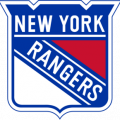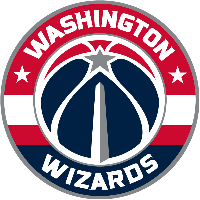
Washington Wizards
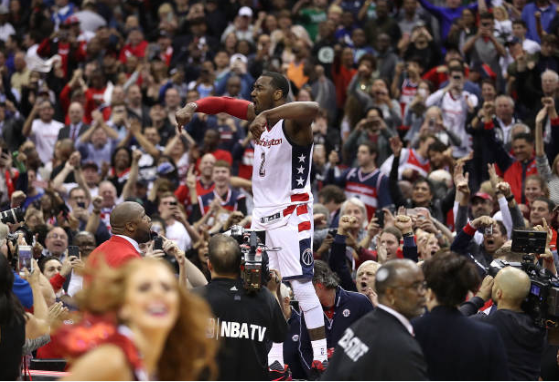
1970 Washington
The Washington Wizards are a professional basketball team currently competing in the National Basketball Association (NBA), specifically in the Southeast Division of the Eastern Conference. They are based in the capital of the United States, Washington D.C., and have played their home games at the Capital One Arena (with a capacity of over 20,000 spectators) since 1997.
They were founded in 1961 and since then have gone through three cities: Chicago, Baltimore and Washington. At first they were known as Chicago Packers, then Chicago Zephyrs and with the move to Baltimore they were renamed Bulles. This name would also remain in Washington and it would not be until 1997 when they decided to change it definitively to Wizards to avoid associations with crime that would damage the image of the city.
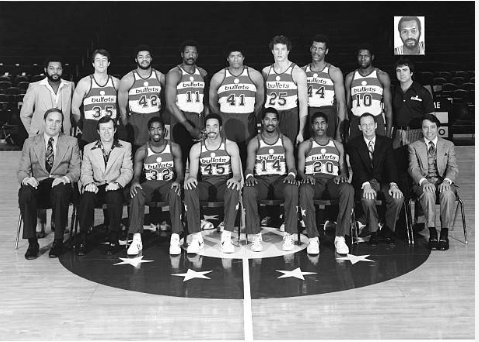
The Washington Wizards, throughout their history, have won 4 conference titles, thus appearing in 4 finals, of which they won one in 1978. They also won 6 division titles in the 1970s, all thanks to a core of Earl Monroe, Gus Johnson, Wes Unseld and Elvin Hayes. In 2017, by the hand of John Wall and Bradley Beal they would add a new division title.
Founding and early changes
The Washington Wizards were founded in 1961, however it was neither in this city nor with this name. They were known as the Chicago Packers and were the first in history to join the NBA through its expansion policy .
The following year they changed their name to the Zephyrs and a year later they moved to Baltimore, Maryland, becoming known as the Baltimore Bullets. They would keep the name 'Bullets' until 1997.
In 1964, through a trade, the Bullets acquired Bailey Howell, Don Ohl, Bob Ferry and Wali Jones. All of them were key to the Bullets reaching the Playoffs for the first time in their history in the 1964-65 season. There, after beating the St. Louis Hawks, they fell to the Lakers in the conference finals.
The successful decade of the 1970s
In the late 1960s, the Bullets acquired two future Hall of Famers in the draft: Earl Monroe and Wes Unseld. With them, the team improved rapidly from 36 to 57 wins and Unseld was named Rookie of the Year and MVP in his first season in the league.
The Bullets went into the Playoffs with high expectations, but ran into the Knicks in the first round, just as they did a year later.
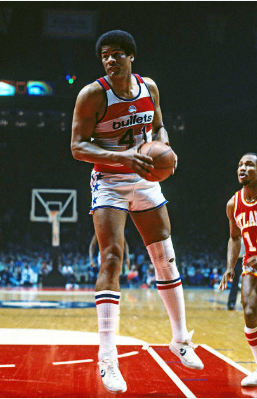
In the 1970-71 season, after a discreet Regular League, the Bullets met the Knicks again in the Playoffs, this time in the Conference Finals. The series was decided in an agonizing seventh game thanks to a basket by Gus Johnson with a few seconds left. Thus, the Bullets qualified for their first NBA Finals, where they were swept by the Milwaukee Bucks of Oscar Roberson and Lew Alcindor.
The Bullets qualified for the Playoffs throughout the 70's, despite trading Earl Monroe. In fact, they finished first in their division 6 times, consistently being strong contenders for a ring. Part of this success was due to the signing of Elvin Hayes from the Rockets.
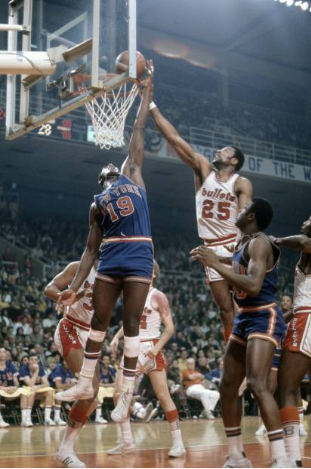
In 1973 the franchise moved to Landover (Maryland), a suburb of Washington D.C., becoming the Capital Bullets. A year later, they became the Washington Bullets.
In the 1974-75 season, the Bullets finished with an impressive record of 60 wins and 22 losses, again reaching the NBA Finals. But despite being the favorites, they were swept by Rick Barry's Golden State Warriors, falling just short of the title again.
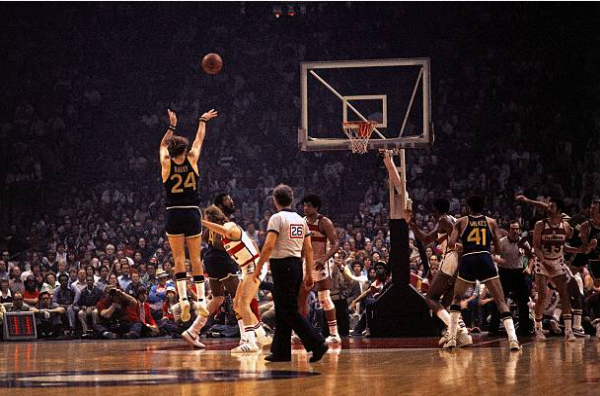
The following year, after an early and disappointing Playoff exit, the Bullets fired coach K.C. Jones and Dick Motta was his replacement. With Motta at the helm, the Capital Bullets were also unable to advance past the second round of the Playoffs.
NBA Champions
After being one of the great teams of the decade and despite having in the roster several stars of the league such as Elvin Hayes or Wes Unseld, the Bullets finished the 1977-78 season with a disappointing record of 44 wins and 38 losses, so they were not favorites for the Playoffs. It was then that Motta used the famous phrase "the play ain't over till the fat lady sings". And Motta was right.
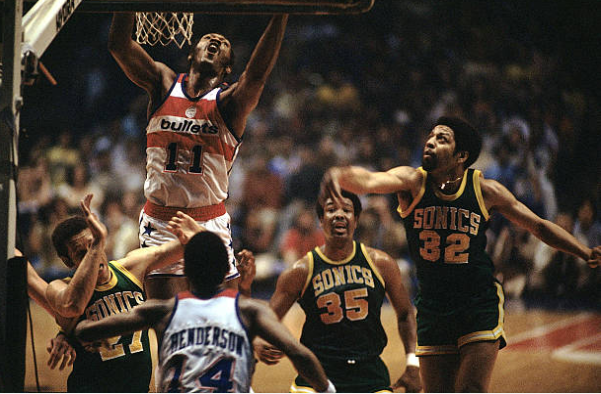
The Bullets surprisingly eliminated the Hawks, Spurs and 76ers to sneak into yet another NBA Finals.
There awaited the Seattle Supersonics, who took a 3-2 lead in the playoffs. However, the capital city team managed to turn it around and became NBA champions for the first time in its history. It was the first professional sports championship for any Washington franchise in 36 years. Wes Unseld was named Finals MVP.
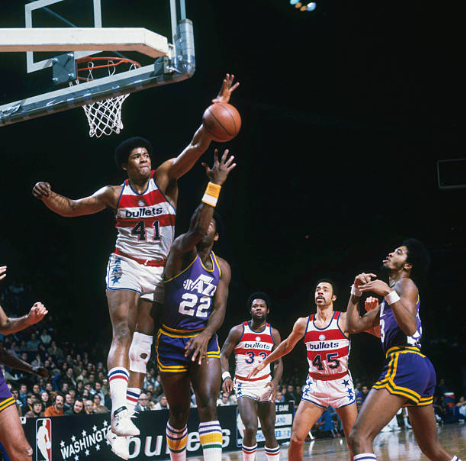
The following year, after finishing 54-28, the Bullets advanced to the NBA Finals for the second consecutive year. However, the Seattle Supersonics went on to win 4-1.
Disappointing 1980s
After two consecutive appearances in the NBA Finals, the Bullets gradually lost steam, giving way to a transition period dominated by continuous disappointments in the Playoffs. During the 80's, the Bullets qualified 7 times for the Playoffs, falling in 6 of them in the first round.
In 1981, the team is out of the postseason for the first time in 13 years, Unseld decides to retire from basketball and Hayes is traded to the Rockets. It was clearly the end of an era.
During the 1980s, the scoring duo of Moses and Jeff Malone led the Bullets to a 42-40 record in 1986-87. The last season with a positive record until 1997.

At that time, the presence of Manute Bol also stood out in the squad. A historical player of 2.29 meters tall, he was characterized by his blocks. In fact, in his first season he put 397 blocks (franchise record). And curiously, in the 1987 Draft they selected Muggsy Bogues, who at 1.60 m. tall is the shortest player in the history of the NBA.
In 1988, with Wes Unseld as coach, the Bullets qualified for the Playoffs with a negative 38-44 record, falling in the first round to the Pistons, and giving way to a period of continuous failures.
More than a decade without direction
From the 1988-89 season through 2003-04, Washington only qualified for the Playoffs once, in 1997, where they were swept in the first round.
In 1991, Susan O'Malley became the first woman to preside over an NBA franchise, but in the meantime, bad luck and injuries plagued the team. Players such as Rex Chapman, Calbert Cheaney and Pervis Ellison suffered physical problems that prevented them from showing their true level.
In 1993, the Bullets acquired Romanian center Gheorghe Mureşan, 2.32 meters tall, becoming the tallest player in NBA history. In the 1995-96 season he is named the league's most improved player, but injuries force him to retire soon after.
After several years of stagnation around 20 wins, optimism returned to Washington in the hands of Rookie Rasheed Wallace and Juwan Howard, who led the Bullets to 39 wins in 1996, although it was not enough to reach the Playoffs. They did make it the following year, with a 44-38 record, but would be eliminated in the first round.
Washington Wizards and the return of Michael Jordan
In 1995, the owner of the franchise announced that it would be renamed to avoid any connection with violence and crime. A competition was held to choose the new name, and in 1997 the Bullets became the Wizards for good, a name that remains today. That same year, they moved to the MCI Center (Capital Center Arena) .
The change of name and pavilion was not accompanied by good results, as they would not return to the Playoffs until 2005.
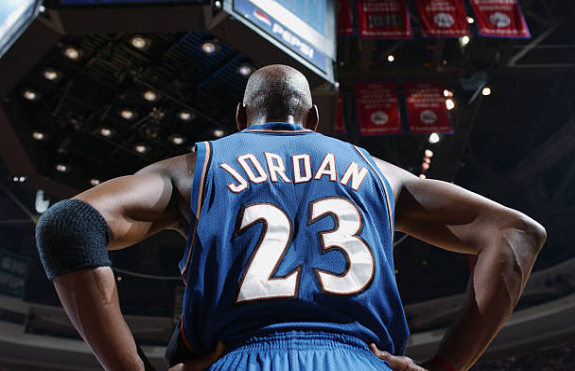
In 2000, Michael Jordan, now retired, became minority owner of the franchise and president of Wizards basketball operations. And in 2001, he surprised everyone by announcing his return to the court at the age of 38.
As expected, his return was not as successful as he would have liked, but he still helped the Wizards improve slightly and was the only player on the roster to complete all 82 games in his second season. He left some images that will go down in history.

In 2003, after saying goodbye to basketball this time permanently, Jordan was fired from his position as president of operations.
The Gilbert Arenas era
The Wizards began to raise their head in the 2004-05 season, when they posted their best record in 26 years at 45-37 to qualify for the Playoffs. Gilbert Arenas and Antawn Jamison were selected as All-Stars, the first Wizards players to do so since Jeff and Moses Malone in 1987.
In the postseason, led by Arenas, the Wizards earned their first win since 1988, eliminating the Bulls 4-2. They were then eliminated by the Miami Heat.
Led by Gilbert Arenas, Antawn Jamison and Caron Butler, all three All-Stars, the Washington Wizards appeared in the Playoffs the next three years, being eliminated by LeBron James ' Cleveland Cavaliers on all three occasions.
In 2007, Arenas suffered an injury that sidelined him for the entire season and he has not been the same since. The following year, he had to undergo knee surgery again and missed another 5 months of competition, which led to the collapse of the Wizards, who only managed 19 wins in the 2008-09 season.
At the end of 2009, Gilbert Arenas was arrested for possession of weapons in his locker and a month later he would be suspended by the NBA for playing with weapons before a game. The team again finished the season with a poor 26-56 record.
In December 2010, the Wizards would finally say goodbye to their franchise player, Arenas, after sending him to the Magic via trade.
John Wall and Bradley Beal make a comeback
In the 2010 Draft, the Wizards select John Wall with the first pick, and in the 2012 Draft they select Bradley Beal with the third pick. The two will form one of the most promising outside lineups in the league, although injuries have prevented them from showing their full potential .
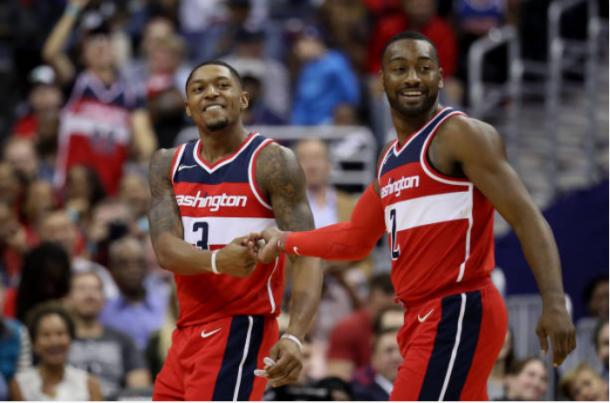
Thanks to the extraordinary play of John Wall, the Wizards return to the Playoffs in the 2013-14 season, starting a streak of 4 Playoffs in 5 years.
In the 2016-17 season, with John Wall at the helm, the team captures its first division title in 38 years, eventually falling in Game 7 of the conference semifinals after an epic series.
The Wizards returned to the Playoffs the following year, though plagued by injuries they were eventually eliminated in the first round. In the 2018-19 season, John Wall suffers a ruptured Achilles tendon that sidelines him for the entire season and the following season, with Bradley Beal taking over the team. With Beal as leader, the team has not been able to reach the Playoffs, but this has established itself as one of the stars of the league, leaving high hopes for when Wall recovers.




































